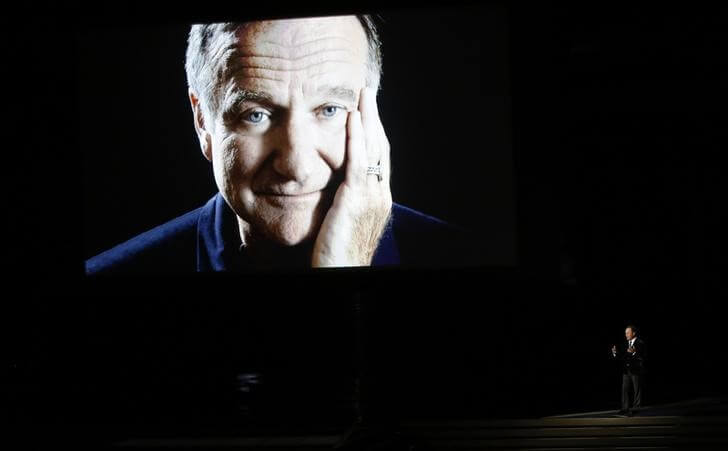Robin Williams suffered from Lewy Body Dementia (LBD) prior to his suicide earlier this yearaccording to a report from TMZ. Susan Schneider, the actor’s widow, revealed to the press that Robin Williams suffered from Parkinson’s disease, an ailment closely related to those with LBD. If you’ve never heard of the Lewy Body Dementia and are wondering what it is, who it effects and the treatment options that are available we’ve complied a quick guide for you below:
What is Lewy Body Dementia?
Named after Friederich H. Lewy, a scientist from the 1900s researching Parkinson’s disease, Lewy Body Dementia (LBD) is a disease that primarily affects the brain.
The Mayo Clinic refers to it as “second most common type of progressive dementia” and the Lewy Body Dementia Association estimates that about 1.3 million men and women in the United States suffer from the disease. What are the symptoms of LBD?
Those who suffer from LBD face a range of challenges, the primary being a steady decrease in one’s mental and physical capabilities. There are risks to these antipsychotic medications asThe LBDA reports: “Up to 50% of LBD patients treated with any antipsychotic medication may experience severe neuroleptic sensitivity, including worsening cognition, heavy sedation, increased or possibly irreversible parkinsonism, or symptoms resembling neuroleptic malignant syndrome (NMS), which can be fatal. Those with LBD may also experience hallucinations. Depending on what kind of hallucinations the patient is suffering from they may be prescribed antipsychotic medications.” Who is at risk for LBD?
The Mayo Clinic reports that although the cause of the disease is not known, the disease primarily affects men who are older than sixty and are related to those with LBD. Those with LBD often have similar complications with their brains as patients suffering from Parkinson’s and Alzheimer’s. What kinds of treatments are available?
There is no cure for LBD. Patients with the disease have a range of treatments available to them for handling the disease among which are: medications to help increase alertness and cognition, drugs used to treat Parkinson’s disease, antipsychotic medications for hallucinations and other medications to treat residual symptoms of LBD and other medications. There are also a range of non-medical therapies and treatments that can be used to lessen the impact of LBD which range from learning to manage one’s hallucinations, to changing one’s daily tasks and routines. For more information about LBD please visit the Mayo Clinic’s section on LBD, and the Lewy Body Dementia Association’s official website.
Robin Williams and Lewy Body Dementia, what you need to know



















